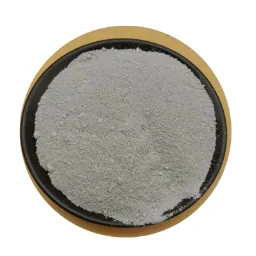
The World of Inorganic Chemical Materials: Powering Innovation and Everyday Life
In the bustling economy of the modern world, the role of chemical materials cannot be understated. Among these, inorganic chemical materials play a pivotal role across various industries, providing vital resources for applications in technology, agriculture, pharmaceuticals, and construction. In this article, we'll explore the fascinating world of inorganic compounds—examples that manifest in our everyday life, and where to source these essential materials from reliable chemical wholesale suppliers and factories like China Lingshou Shunshun Mineral Co., Ltd.

Understanding Inorganic Chemical Materials
Inorganic chemicals are compounds that lack carbon-hydrogen (C-H) bonds. They include everything from simple salts and minerals to complex crystal structures. Their unique properties make them invaluable across a multitude of industries. Examples of inorganic compounds, such as oxygen (O2), sodium chloride (NaCl), and sulfuric acid (H2SO4), are not just theoretical; they play critical roles in our daily activities and the advancement of technology.
In the realm of construction, inorganic materials such as cement, glass, and ceramics dominate. They are integral in building structures that define our urban landscapes and ensure durable, long-lasting products. In agriculture, inorganic compounds like fertilizers and pesticides contribute to increased crop yields, ensuring food security for the growing population.
Inorganic Compounds Examples Everyday Life
Every day, we come into contact with a variety of inorganic compounds without even realizing it. Household items, cleaning products, and even the food we consume often contain inorganic materials.
- Table Salt (Sodium Chloride): This ubiquitous seasoning is a prime example of an inorganic compound. It not only enhances flavor but also plays a role in various biological processes.
- Baking Soda (Sodium Bicarbonate): This versatile substance serves as a leavening agent in baking, and it’s recognized for its cleaning properties. Many households rely on this compound for everything from deodorizing to stain removal.
- Ammonia (NH3): Used in many household cleaning supplies, ammonia is effective for cutting through grime and dirt, making it a go-to for maintaining cleanliness in homes and workplaces.
- Calcium Carbonate: Found in antacids and used as a calcium supplement, calcium carbonate is an example of an inorganic compound that addresses common health needs while also being integral in construction materials, like limestone and marble.
- Silica (SiO2): Commonly found in sand, silicates are used in various applications, ranging from glass-making to electronics, showcasing the versatile nature of inorganic materials.
The Role of Chemical Wholesale Suppliers and Factories
When it comes to sourcing inorganic chemical materials, relying on trusted chemical wholesale suppliers and manufacturers is crucial. Companies like China Lingshou Shunshun Mineral Co., Ltd. stand out in the field for their commitment to quality and sustainability in the production of chemical materials.
China Lingshou Shunshun Mineral Co., Ltd., serves as a reliable chemical factory specializing in inorganic chemical production. Their state-of-the-art facilities are equipped to manufacture a wide range of products, ensuring that everything meets strict industry standards. Whether you’re looking for raw materials for construction, manufacturing, or pharmaceutical applications, suppliers like ACDC can provide the necessary chemicals, ensuring the supply chain remains uninterrupted.
Being a wholesaler means they can cater to bulk requirements, making it significantly easier for businesses to procure the necessary inorganic materials for their operations. The scale at which they operate allows them to keep prices competitive, which can be critical for business profitability.
The inorganic chemical industry is evolving; sustainability and environmental responsibility are becoming paramount. Forward-thinking companies are adopting practices that minimize waste and reduce environmental impact. China Lingshou Shunshun Mineral Co., Ltd. is among those leading the charge toward greener manufacturing processes by utilizing eco-friendly methods in their production lines.
By investing in research and development, these companies not only enhance functionality in their existing products but also work towards creating new and innovative inorganic materials. These advancements will open up new opportunities for applications in various sectors such as electronics, energy production, and more, allowing industries to embrace a more sustainable future.
Inorganic Chemical Materials FAQs
1.What are inorganic chemical materials?
Inorganic chemical materials are compounds that do not contain carbon-hydrogen (C-H) bonds. They encompass a variety of substances and play critical roles in numerous industrial applications.
2.What are some everyday examples of inorganic compounds?
Everyday examples of inorganic compounds include table salt (sodium chloride), baking soda (sodium bicarbonate), ammonia (NH3), calcium carbonate, and silica (SiO2). These substances have various applications in food, cleaning, and construction.
3.Why is it important to source inorganic materials from a reputable supplier?
Sourcing inorganic materials from a reputable supplier ensures quality, reliability, and compliance with industry standards. It helps maintain the integrity of products and operations, which is essential for businesses.
4.How is China Lingshou Shunshun Mineral Co., Ltd. contributing to the industry?
China Lingshou Shunshun Mineral Co., Ltd. is actively focused on sustainable practices in the production of inorganic materials, promoting environmentally friendly methods and ensuring high-quality products for various industrial applications.
5.What are the future trends in the inorganic chemical industry?
Future trends in the inorganic chemical industry include a focus on sustainable production methods, the development of innovative materials, and advancements in technology aimed at improving product performance and reducing environmental impact.
In essence, inorganic chemical materials are not just integral to industrial applications; they permeate our daily lives in ways we often take for granted. By understanding their significance and sourcing them responsibly, we can ensure that we meet both our present needs and act sustainably for the future.
Roinn
-
Silica Fume: High-Performance Additive for Concrete Strength and DurabilityNaidheachdanJul.21,2025
-
Iron Powder: Industrial-Grade Versatility in Powdered FormNaidheachdanJul.21,2025
-
Iron Ore: Essential Raw Material Driving Global Steel ProductionNaidheachdanJul.21,2025
-
Glass Marbles: From Classic Toys to Custom CollectiblesNaidheachdanJul.21,2025
-
Glass Beads: Bulk Supply, Custom Designs, and Factory Direct SourcingNaidheachdanJul.21,2025
-
Chemical Products for Sale: Sourcing Safely from Trusted Chemical FactoriesNaidheachdanJul.21,2025






